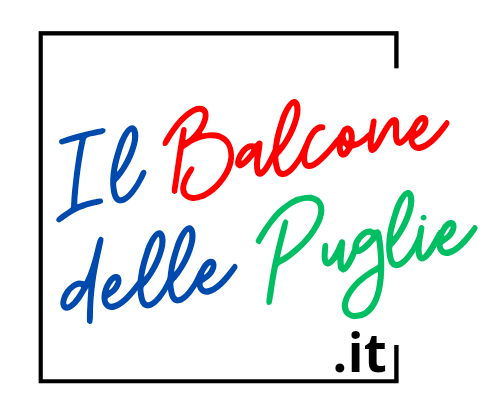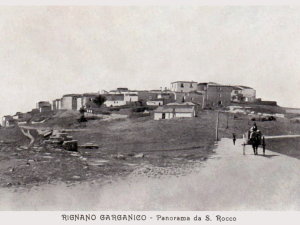Pill Esophagitis Explained: Symptoms, Causes, Treatment
This can result from either muscle spasms – much like those experienced from poisoning – or loss of muscle control. The latter cause often stems from the person’s heart rate and breathing beginning to slow, causing them to not swallow. Heroin and opioids are the most common culprits of drugs that can cause foaming at the mouth. This results in excess saliva production that can lead to mouth frothing.
Substance Use Recovery Programs in Arizona
The rabies vaccine stops the rabies virus from causing an infection. Once symptoms start, there is no way to treat rabies, and the infection is usually fatal. If you’ve been bitten by an animal or you think you’ve been exposed to rabies, call 911 or your local emergency services or go to the nearest emergency department. But if you’ve been bitten by a dog and don’t know the dog’s vaccination history, it’s important to get emergency care to prevent rabies. Febrile seizure is fairly common, affecting up to 4% of children between the ages of 6 months to 5 years. If a fever causes a tonic-clonic seizure, this can lead to foaming at the mouth.
In cases of drug overdose, immediate first aid and emergency response are critical to stabilize the individual and potentially save their life. Heart ConditionsConditions such as pulmonary edema can result from heart failure. Severe pulmonary edema can cause liquid to come out of the nose and mouth. This is an emergency medical situation, and you must call 911 immediately. For seizures, these may include loss of consciousness, muscle rigidity or twitching, and temporary confusion.
Cleanbreak Recovery
If foaming at the mouth is suspected to be related to a medical condition, it is crucial to consider other accompanying signs and symptoms. These may include convulsions during seizures, changes in consciousness, difficulty breathing, or other indicators of the underlying medical issue. If encountering someone exhibiting foaming at the mouth due to toxic substance exposure, it is vital to prioritize their safety. Remove them from the toxic environment and seek immediate medical attention. Contact emergency services and provide detailed information about the suspected substance or situation to facilitate appropriate medical intervention. Contact emergency medical care and provide any relevant information about the individual’s condition and the suspected drug involved.
If someone is or may be experiencing an overdose, a witness should call emergency services or drive them to the nearest hospital. Treatment will vary depending on the cause of foaming at the mouth, but emergency what drug makes you foam at the mouth treatment is usually necessary to prevent serious, irreversible complications. Rabies can infect and damage the brain and central nervous system of all types of warm-blooded mammals.
Opioid overdose
Learn about what a person can do if they feel they are about to have a seizure. People who overdose on ingestible toxins, such as alcohol or liquid chemicals, may require a stomach pump or activated charcoal to remove the toxin. It can take only 1–3 hours from the time of the overdose to cause death. Usually, only one type of seizure, which is called a tonic-clonic seizure, causes drooling, slight foaming, or bubbling at the mouth. It may be pink-tinted, and happens as a result of a person struggling to breathe.
- In this article, we’ll discuss what drug can cause foaming at the mouth, and why it’s important to be aware of this potential side effect.
- The Scottsdale, AZ based Pinnacle Peak Recovery Detox Center recently published an article that explores how certain drugs can cause foaming at the mouth.
- Medical professionals will assess the situation, conduct a thorough evaluation, and initiate appropriate treatment based on the underlying cause of foaming at the mouth.
- Medical conditions and emergencies necessitate immediate medical intervention to ensure the well-being of affected individuals.
- Substance abuse can be defined as the excessive use of a legal or illegal substance where over time the substance is overused and therefore can make the user immune from its effects.
- A life-saving drug called naloxone, also known as Narcan, begins working in minutes to reverse an overdose.
Which animals carry rabies?
- To find naloxone distribution sites nearby, check with local pharmacies or community health organizations.
- Actions like approaching or being bitten by wildlife, such as bats or raccoons, increase rabies risk.
- In Arizona, up to 40% of youth have tried at least one kind of substance in 2020.
- A severe overdose may cause drooling or saliva to pool in the mouth and be pushed through clenched teeth and lips.
- The genuine kindness and understanding that is to be received from the staff here is a rare find.
- Foaming at the mouth often results from the toxicological impact of certain drugs on the body.
In drug-related situations, addressing overdose risks and promoting harm reduction strategies are crucial. On the other hand, abnormal foaming at the mouth is characterized by excessive salivation that leads to a profuse and persistent foam-like substance around the mouth. This can occur as a side effect of certain drugs, toxic exposures, or underlying medical conditions. Foaming at the mouth refers to the excessive production of saliva combined with air or bubbles, resulting in a foam-like substance around the mouth. While it can occur due to various factors, including medical conditions or seizures, this blog focuses on the drugs that can lead to this symptom. Yes, foaming at the mouth is always considered a medical emergency.
Drug interactions can be life-threatening and require immediate medical attention. Stimulants are drugs that increase alertness, energy, and concentration. Commonly used stimulants include cocaine, amphetamines, and methamphetamine. Stimulant use can cause foaming at the mouth, as well as agitation, confusion, delirium, and even seizures. Stimulant overdoses can be life-threatening and should be treated as a medical emergency. If a person suspects a drug overdose, it is essential to seek immediate medical help.
We offer 12-step programs as well as alternative, evidence-based treatment programs. We are fully committed to the lifelong success of everyone who steps into our facility. Recovering from any substance use can seem daunting at first, but this isn’t our first rodeo at Pinnacle Peak Recovery. We offer a full compendium of care, from detox to outpatient, and our compassionate and highly qualified staff are here to help you. Many opioids are used to assist in pain management, especially post-injury. There are types of opioids, like heroin, that have only been created for illegal consumption.
If you are ever faced with a situation involving foaming at the mouth, it’s crucial to stay calm, assess the situation, and seek medical help as soon as possible. Taking these steps can help ensure the safety and well-being of the individual experiencing foaming at the mouth. Distinguishing between different substances and their effects on the body is crucial in medical and other emergency care contexts. It is important to note that excessive salivation and foaming at the mouth resulting from stimulant drug use can vary in severity and duration. Factors such as the dosage, purity of the drug, and individual response can influence the extent of saliva production and foam formation.
Foaming at the mouth in opioid overdose cases is often caused by respiratory depression, leading to pulmonary edema (fluid in the lungs). Below is a list of opioids that are most likely to cause this symptom, along with how they interact with the body, their common names, methods of consumption, and overdose thresholds. Foaming at the mouth is to see the white, bubbly substance spreading in our mouth. We think of it either as a poisonous reaction to our body or a seizure attack. People might link the causes of mouth-foaming to an overdose of stimulants like cocaine, meth, or opioid overdose.
Il sito è gestito dal Circolo Culturale Giulio Ricci e ripropone i contenuti dell’archivio del Fondo Tonino Del Vecchio.










Commento all'articolo